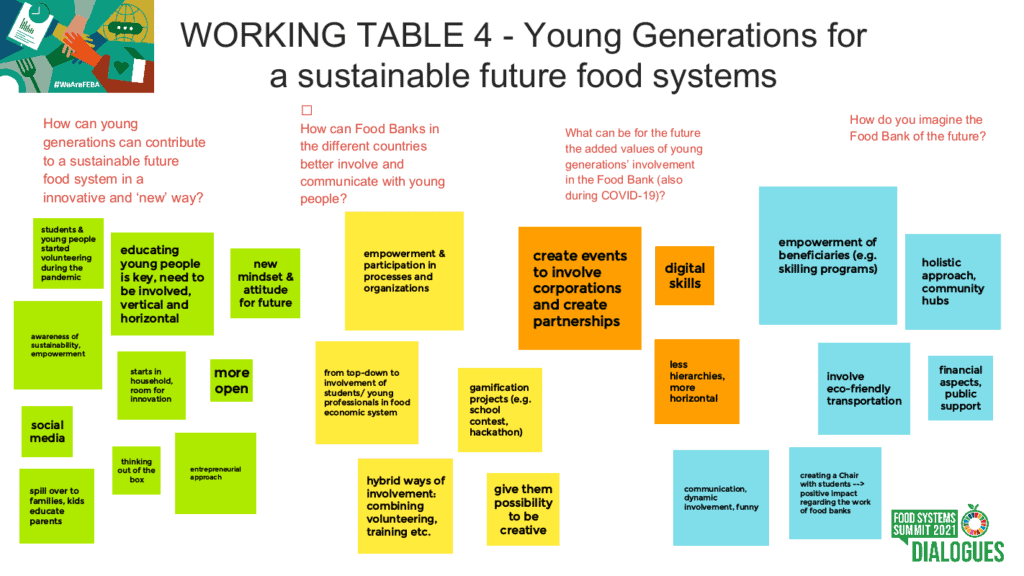Working Table 4
Young Generations for a sustainable future food system
Facilitators

Anna Oggioni
Assistant to the Secretary General, FEBA

Irene Ripamonti
Junior Industry Partnership Developer, Fondazione Banco Alimentaire Onlus

Suzanne Evain
Institutional Relations Officer, Fédération Française des Banques Alimentaires

Sophie Kamrad
Working student - International fundraising & logistics, Tafel Deutschland e.V
26 participants under 30 years old from all over Europe (from France, Italy, Spain, Poland, Sweden, Netherlands, Germany and the UK) participated in this Working Table. All of the participants had very different backgrounds, some from academic research and institutions, some from national Food Banks and others from corporations and companies.

During the first part of the discussion, participants talked about how young people can contribute to a sustainable food system in innovative ways and what Food Banks can do to involve and communicate with young people.
First of all, young people have a new mindset and attitude, they are increasingly aware of and care about issues such as sustainability, because they directly affect their future. A second key point was education. Educating young people about food and sustainability and involving them from an early age is key. For example, now often it’s the kids that teach the parents new behaviours. Another buzzword for how to involve young people in food banking activities was „empowerment and participation”.
They want to be engaged and be part of the processes and the organizations. Hybrid ways of involvement for example combining volunteering, training and workshops etc. could be a key factor for Food Banks. Another interesting thought on how to engage young people was through gamification, this could be school or university contests and projects, or hackathons, because many young people have an entrepreneurial approach.
The participants talked about what added value young people can bring to the Food Banks and how they imagine the future of Food Banks. Digital skills for instance and the appreciation for more horizontal and less hierarchical ways of working will be a great asset for the future. Also establishing and strengthening partnerships with corporations, for example by hosting events in relation to food banking topics and engage young professionals. It was also mentioned, that in the future, it will be crucial to empower and engage the beneficiaries more, to address the root causes and follow a holistic approach, so that Food Banks become more of a community hub. Also being eco-friendly not only due to saving food, but also looking at the means of transportation and packaging for instance.
It was a very interesting and fruitful discussion and new insights, because of the different backgrounds.
One key message that the participants want to share is that young people are the leaders of change and through Food Banks’ involvement young people can really be protagonist of the future of our countries, of Europe and the world.



